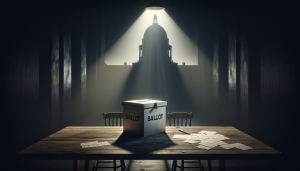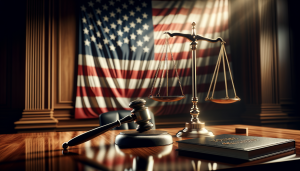GOP takes over N.C. elections board, boosting chances of reversing high court race

Republican Control of North Carolina Elections Board
In a significant political development, Republicans have assumed control over North Carolina’s elections board as of Thursday. This shift could potentially influence the outcome of a closely contested November election for a state Supreme Court seat, thereby strengthening the Republican majority on the court.
North Carolina, a pivotal battleground state, has been engulfed in political and legal turmoil since the Republicans secured the presidential electoral votes last fall, despite losing key state positions including governor, attorney general, and a crucial Supreme Court seat.
New Law Changes Board Appointment Powers
Following the election, the Republican-dominated state legislature enacted a law transferring the authority to appoint members of the elections board from the Democratic governor to the Republican state auditor. This move sparked a lawsuit from Governor Josh Stein (D), leading to a temporary block by a panel of judges. However, an appeals court recently overturned this block, allowing Republican State Auditor Dave Boliek to appoint new members to the board—three Republicans and two Democrats.
“We need full confidence in our elections, and I’d like to thank these individuals for their willingness to serve,” stated Auditor Boliek. In contrast, Anderson Clayton, chair of the North Carolina Democratic Party, criticized the appointments as “an abuse of power and a disservice to the people of North Carolina.”
Impact on State Supreme Court Composition
|
The restructuring of the elections board comes amid an ongoing dispute over the composition of the state Supreme Court, where Republicans currently hold a 5-2 majority. The November election saw Democratic Justice Allison Riggs win her seat by a mere 734 votes. Her opponent, Republican state appeals Judge Jefferson Griffin, has challenged the validity of some votes, leading to a state Supreme Court decision that could result in thousands of votes being discarded—a decision from which Riggs recused herself.
The elections board plays a crucial role in this legal battle, as they are tasked with determining which votes might be affected by the Supreme Court’s ruling. With the board now under Republican majority, they may align more closely with Griffin’s argument to expand the review of ballots.
Most of the contested ballots were cast by overseas and military voters who did not provide ID copies. According to the state Supreme Court’s order, these voters will have 30 days to submit their IDs, failing which their votes will be discounted.
The legal challenges surrounding the state Supreme Court seat and the control of the elections board are likely to continue for several months, highlighting the ongoing political strife within the state.









No Comments